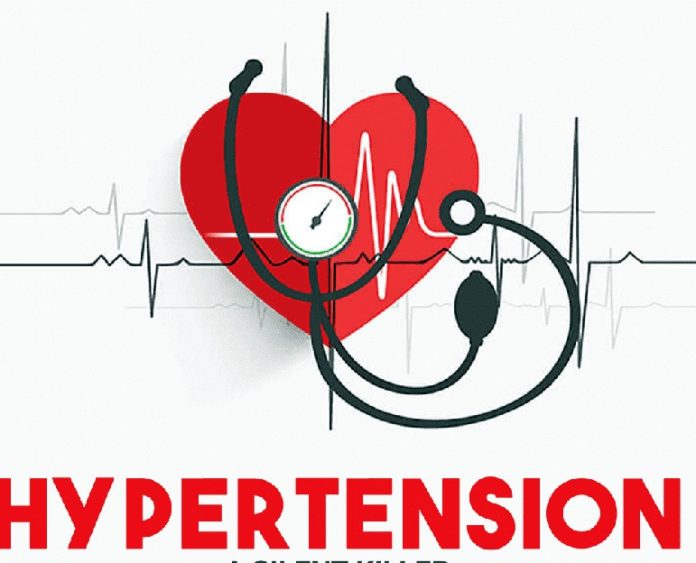When Ms Abi Davies, a 38-year-old mother of two, rose from her sewing desk one afternoon, she felt something she could not explain.
A sudden wave of dizziness swept through her body; her legs grew weak and could not carry her weight, and with panic in her eyes, she told her apprentices in a faint voice: “I am going down.”
Moments later, she was rushed to the hospital, and what she thought was fatigue turned out to be something far more dangerous and chronic: hypertension, the silent killer.
“Prior to my diagnosis, I often woke up with severe body pains, feeling uncomfortable and anxious. Occasionally when I spoke, my voice was not even audible enough. I got easily irritated and couldn’t think straight,” she recalled.
Like many people, Abi brushed off the telltales, but her body was silently battling dangerously high blood pressure. Her pulse was above 138 when checked when they arrived at the hospital.
Even though other tests run on her revealed no diabetes and some level of high cholesterol, her strong family history of hypertension placed her at great risk, as it is one of the major contributing factors of hypertension.
“The doctors suspected my case might also be triggered by psychological stress,” she explained, adding that “They even recommended I see a professional, which helped me.”
The reality of a lifetime diagnosis
Abi was placed on medication. “At first, the dose was high. I was taking so many drugs, but with consistency, the dose was lowered. Now I am on only two medicines for life,” she said, wearing a grin on her face.
The weight of that sentence, “taking medication for life”, is something many newly diagnosed patients struggle to accept.
3For Ms Davies, it was devastating at first. “When you hear you have hypertension, you ask yourself: how will I live with this sickness forever?” she reflects. “But with counselling and faith, I accepted it. I told myself, “Don’t panic; just follow the routine.”
A journey of self-discipline
Through trial and error, she discovered what triggered her blood pressure spikes. She realised that exercising is very helpful for her situation. “Walking a lot in Accra Central actually brings my BP down,” she says. “Even though I have a sedentary job, exercise makes a difference.”
For her, even though she is not a salt person, she realised that spices and late-night eating can shoot her blood pressure up. “Whenever I eat late, my BP is high in the morning.”
Another coping mechanism for her is not managing her emotions. “I don’t have to get annoyed or anxious. Even lying down won’t bring your pressure down if you are overthinking.”
She remembers how numbness in her hands, severe headaches, and even insomnia haunted her. Today, she says, “I’ve realised that no matter what doctors or family do, if I don’t help myself, it will amount to nothing. Self-care is key.”
Ghana’s growing hypertension burden
Abi’s story is not an isolated case. According to the Ghana Health Service, one in three adults lives with hypertension. Yet more than half of those affected do not even know it.
The Ghana STEPS Survey Report (2023) paints a worrying picture: 90.5 per cent of adults regularly add salt while cooking, and 13 per cent still add extra salt at the table.
About 22.8 per cent frequently consume processed foods high in salt, a triple assault on their health.
The survey reported that a screening gap exists with nearly a quarter, 24.3 per cent of adults never have had their blood pressure checked, with men more likely (33.8%) than women (14.7%) to ignore testing.
Only 16.7 per cent of adults have ever been told they have high blood pressure, meaning millions of people are left undiagnosed.
Meanwhile, out of the diagnosed, just 29.1 per cent are on medication. “Worryingly, fewer than 10 per cent of those on medication have their blood pressure under control,” the report added.
The Ghana STEPS Survey Report (2023) found that 8.4 per cent of Ghana’s population lives with dangerously elevated blood pressure, with prevalence climbing sharply with age, from just 1.1 per cent among 18–29-year-olds to over 23 per cent among those aged 60–69.
As Dr Gloria Ani-Asamoah, a family physician at the Korle-Bu Polyclinic, warns, “Hypertension is a silent killer. Most people do not present symptoms until it is too late. The salt in our diets, stress, and sedentary lifestyles are pushing more Ghanaians into danger.”
Dr Michael Tetteh of the Tema General Hospital calls it a “modern epidemic” that has tripled in the last decade.
“More than two-thirds of hypertensive people in Africa don’t know their status. Without early detection, the first sign may be stroke or sudden death,” he said.
The deadly silence
The tragedy of hypertension lies in its silence. People live their daily lives unaware until stroke, heart attack, or kidney failure strikes. Abi admits she could easily have been one of them.
“It is truly a silent killer,” she says. “Many people die, and we say, ‘Oh, they just died unexpectedly. They had no medical issues but died just like that. But it is often undiagnosed hypertension.”
Her advice is simple, but urgent: “Get checked. Don’t wait until you collapse. The fear alone can kill you. But if you are diagnosed, don’t panic. Take your medication, exercise, eat well, and above all, take care of yourself.”
A call to action
Hypertension is preventable and manageable, but deadly when ignored. The World Health Organisation (WHO) estimates that 1.28 billion adults worldwide live with hypertension, with two-thirds in low- and middle-income countries like Ghana. Only one in five patients has their condition under control.
The path forward is clear: routine checks at pharmacies, workplaces, and clinics; lifestyle adjustments to include more intake of fruits and vegetables, less processed food, and regular exercise.
Experts encourage the public to manage their stress, as hypertension is as emotional as it is physical.
There is also the need for public education campaigns in schools, churches, workplaces, and media to normalise regular blood pressure checks and reduction in salt consumption.
Breaking the silence
Abi Davies’ words ring an echoing reality: “Those days I was going about my business without knowing I had such a serious issue. You can check your blood pressure in the morning, and it looks fine, but something can trigger it suddenly. I am just grateful I was diagnosed in time.”
Her survival is both a warning and a lesson. Hypertension does not knock before entering, but if ignored, it kills.
For every Ghanaian, the message is clear: measure your blood pressure, control it, and avoid being snatched by hypertension’s silent grip.
A GNA feature by Laudia Sawer









